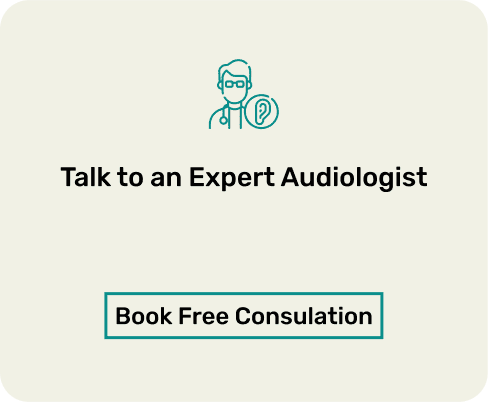Feeling light-headed every time you stand up? Or maybe the room spins for a split second and then snaps back into place like a faulty gyroscope righting itself. Weird, right?
Most of us blame the brain first. No surprise there; it’s the command center, after all. But here’s the kicker: almost nine out of ten dizzy spells trace back to the tiny, fluid-filled labyrinths inside your ears, not the grey matter upstairs. That means thousands of folks queue up outside neurology clinics when an ENT was the real pit stop they needed.
So, what actually sorts ear-based balance glitches from full-on neurological alarms? Two cutting-edge checks: VEMP (Vestibular Evoked Myogenic Potential) and eCochG (Electrocochleography). Think of them as high-definition sonar and ECG rolled into one, mapping how your inner-ear sensors talk to the rest of your body. Quick, painless, and surprisingly insightful.
The good news is that both tests are now on tap at Centre for Hearing® in Delhi, a reliable name in audiology.
Why Are Balance Disorders Often Misdiagnosed?
The ear is more than a sound receiver; it is the body’s built-in gyroscope. When its vestibular sensors misfire, the world tilts and dizziness, vertigo, imbalance, or nausea follow.
Too often, these symptoms get blamed on the brain or patched with quick fixes like Vertin or Stugeron; the pills dull the discomfort but never tackle the source. Advanced vestibular testing is the only way to trace the trouble inside the inner ear and guide proper treatment.
What Is an eCochG Test and Who Needs It?
Electrocochleography (eCochG) is a non-invasive diagnostic test that measures the electrical potentials generated in the inner ear (cochlea) and auditory nerve in response to sound. It is particularly useful for diagnosing:
- Meniere’s Disease
- Endolymphatic Hydrops
- Cochlear Hydrops
- Retrocochlear lesions
By detecting abnormal fluid pressure or neural transmission issues in the inner ear, the eCochG test helps ENT specialists pinpoint the exact nature of your balance disorder.
✅ eCochG Test Charges in Delhi: Rs. 8,000 at Centre for Hearing
What Is a VEMP Test and Why Is It Important?
The VEMP (Vestibular Evoked Myogenic Potential) test assesses the function of the saccule and utricle—organs within the vestibular system responsible for detecting motion and gravity. VEMP testing is crucial in diagnosing:
- Superior Canal Dehiscence
- Vestibular Neuritis
- Bilateral Vestibulopathy
- Otolithic dysfunctions
- Delayed Endolymphatic Hydrops
There are two types of VEMP tests—cVEMP (cervical) and oVEMP (ocular)—each assessing different parts of the vestibular system. These are critical tools in the differential diagnosis of unexplained dizziness.
✅ VEMP Test Charges in Delhi: Rs. 7,500 at Centre for Hearing
Don’t Rely on Medication Alone
For patients in Delhi, dizziness often meets a quick prescription for Vertin, Stemetil, or Stugeron. The pills dull the spins but can postpone a proper diagnosis. Real, lasting relief starts with objective vestibular tests that pinpoint the actual fault.
Consider Benign Paroxysmal Positional Vertigo (BPPV), a leading vertigo trigger; simple repositioning manoeuvres can clear it up in one sitting, yet it is frequently misidentified when those tests are left out.
Schedule Your Advanced Balance Testing in Delhi
If you’re struggling with dizziness, vertigo, or unexplained imbalance, don’t wait. Accurate diagnosis is the key to long-term relief. Centre for Hearing® offers advanced checks like VEMP and eCochG, run by expert audiologists with full ENT support, so you can target the real problem and stay steady for good.
📍 Multiple locations in Delhi and NCR
🧠 Focused on accurate diagnosis, not just symptomatic relief
💡 Trusted by ENT doctors and neurologists across Delhi
✅ Book Your Appointment Today
Take control of your balance issues—schedule your VEMP or eCochG test in Delhi at Centre for Hearing.
📞 Call us or fill out our online appointment form to get started.
Why Your Regular Hearing Test Might Not Be Enough
Here’s something most people don’t realise: your inner ear does double duty. The same complicated system that helps you hear also keeps you steady. When something goes wrong with this fragile system, the symptoms can be hard to understand.
For example, some individuals get very dizzy when they hear certain sounds, like a phone ringing. Their pure tone audiometry may show only a little hearing loss, but they have symptoms that make it hard for them to do everyday things that regular testing can’t explain.
Advanced testing can often find the solution. For example, superior canal dehiscence syndrome (SCDS) is a disorder where a little hole in the bone of the inner ear causes major issues with hearing and balance.
Without specialised diagnostic tools, such conditions frequently remain undiagnosed.
What Is VEMP Testing: A Peek Into Your Inner Ear’s Secrets

VEMP tests evaluate how well your balance organs respond to sound and vibration stimuli. These hearing tests essentially monitor the communication pathways between your inner ear and brain, providing insights that standard hearing tests cannot capture.
VEMP tests have two types:
Cervical VEMP (cVEMP): The Neck Muscle Detective: During this test, you’ll turn your head while we place electrodes on your neck muscles. When sound stimuli are presented to your ear, your neck muscles produce measurable responses. These responses provide valuable information about your saccule (one of your balance organs) and the associated nerve pathways.
Ocular VEMP (oVEMP): The Eye Movement Monitor: This version focuses on your eye muscles. The responses are so subtle you can’t feel them happening, but our equipment can detect these microscopic contractions. This test specifically evaluates your utricle and superior vestibular nerve function.
Real-World Applications
Advanced VEMP testing is particularly effective at detecting conditions that traditional audiometry cannot identify. These tests excel at diagnosing sound-induced dizziness and balance disorders that may appear puzzling without proper evaluation.
VEMP tests are particularly brilliant at detecting:
- Superior canal dehiscence syndrome
- Vestibular nerve damage
- Age-related balance decline
- Post-traumatic vestibular changes
eCochG: Eavesdropping on Your Cochlea’s Electrical Activity
Electrocochleography sounds intimidating, but it’s actually quite fascinating. Your cochlea generates tiny electrical signals when it processes sound, like a biological battery. eCochG testing allows us to measure these signals directly, giving us objective data about how well your inner ear is functioning.
We place an ultra-sensitive electrode in your ear canal (don’t worry, it’s not painful) that picks up two key electrical responses:
- Summating Potential (SP): Think of this as your hair cells’ way of saying “message received” when sound arrives.
- Action Potential (AP): This represents your auditory nerve fibres firing in synchronisation, like a well-coordinated orchestra.
The magic happens in the ratio between these two measurements. When this ratio is elevated, it often indicates endolymphatic hydrops – the underlying problem in Ménière’s disease.
Why This Matters for Patients
Patients experiencing episodes of severe dizziness, hearing loss, and tinnitus often receive varying opinions from different healthcare providers. eCochG testing provides objective evidence that can definitively diagnose conditions like Ménière’s disease, offering clear answers and enabling targeted treatment approaches.
Beyond Ménière’s Disease
eCochG isn’t just about one condition. It helps us identify:
- Retrocochlear pathology (problems behind the cochlea)
- Acoustic neuromas
- Cochlear function in potential implant candidates
- Objective hearing loss verification
When You Actually Need These Advanced Tests

Not everyone needs advanced testing, but certain symptom combinations are red flags that warrant deeper investigation:
- The “Sound Makes Me Dizzy” Pattern: If loud noises trigger vertigo or balance problems, this isn’t normal and definitely needs investigation.
- The “Fluctuating Everything” Pattern: When your hearing, tinnitus, and dizziness all fluctuate together, there’s usually an underlying inner ear condition at play.
- The “Normal Test, Abnormal Symptoms” Pattern: When standard tests show normal results but you’re still struggling with significant symptoms, advanced testing often provides answers.
Pre-Surgical Evaluations
Before cochlear implant surgery, eCochG helps determine how much residual cochlear function remains. This information is crucial for setting realistic expectations about outcomes.
Similarly, patients considering middle ear surgery benefit from a comprehensive vestibular assessment to understand potential impacts on balance function.
The Centre for Hearing® Difference

Here’s what makes Centre of Hearing® the ideal option to undergo advanced hearing and balance tests:
State-of-the-Art Equipment Meets Expert Interpretation
Having advanced equipment is one thing, but interpreting the results correctly requires experience. Our 50+ expert audiologists have collectively analysed thousands of these complex tests, developing the expertise to spot subtle abnormalities that less experienced clinicians might miss.
The Comprehensive Approach
We don’t just run isolated tests. VEMP and eCochG results are integrated with your complete audiological profile, medical history, and symptom pattern to create a comprehensive picture of your inner ear health.
Patient-Centred Care
Our air-conditioned facilities, equipped with European manufacturer diagnostic equipment, ensure comfort throughout testing. More importantly, we take time to explain what we’re doing and why, ensuring you understand your results and their implications.
If you want a quick visit, our centres are located in:
- Mumbai, Gurgaon, Delhi
- Punjab: Ludhiana, Patiala, Jalandhar
- Chandigarh Tricity Area: Chandigarh, Mohali, Panchkula
To find the nearest centre to your location, click here.
You can also schedule a visit here: +91 9811 227 269
Takeaway
Advanced hearing and balance testing represents a paradigm shift from symptom management to precise diagnosis. When standard tests leave questions unanswered, VEMP and eCochG testing often provide the missing pieces of the puzzle.
For patients experiencing the frustration of unexplained auditory or vestibular symptoms, these sophisticated diagnostic tools can be genuinely life-changing. They transform mysterious, debilitating symptoms into understandable conditions with clear treatment pathways.
At Centre for Hearing®, we believe every patient deserves answers. Our commitment to comprehensive diagnostic excellence, backed by over 50 years of experience, ensures you receive the most thorough evaluation possible.
FAQs
Are VEMP and eCochG tests painful?
No, both tests are completely painless procedures. VEMP testing involves placing electrodes on your neck or near your eyes while sounds are played through headphones. eCochG requires a small electrode in your ear canal, which may feel slightly unusual but causes no discomfort. Most patients find these tests much more comfortable than they anticipated.
How long do these advanced hearing tests take?
VEMP testing typically takes 30-45 minutes, while eCochG testing usually requires 20-30 minutes. However, when combined with a comprehensive audiological evaluation, you should plan for approximately 90 minutes to 2 hours for your complete assessment at Centre for Hearing®.
Will my insurance cover VEMP and eCochG testing?
Coverage varies by insurance provider and specific policy terms. Many insurance plans do cover these tests when medically necessary and prescribed by a healthcare provider. We recommend checking with your insurance company beforehand, and we can provide the necessary documentation for reimbursement claims.
What should I expect during my first visit for advanced hearing tests?
Your appointment will begin with a detailed discussion of your symptoms and medical history. Our RCI-certified audiologists will explain each test procedure and answer any questions. After testing, you’ll receive a comprehensive explanation of your results and recommendations for next steps, whether that involves hearing aids, medical referrals, or additional evaluation.
Can children undergo VEMP and eCochG testing?
Yes, children can safely undergo these tests, though age and cooperation level are important factors. VEMP testing is generally easier for children as it requires minimal cooperation. eCochG may be more challenging for very young children due to the need to remain still. Our experienced audiologists assess each child individually to determine the most appropriate testing approach.
How accurate are these tests in diagnosing inner ear conditions?
Both VEMP and eCochG are highly sensitive and specific diagnostic tools when performed by experienced professionals. VEMP testing shows excellent accuracy in detecting vestibular disorders, while eCochG demonstrates high reliability in diagnosing conditions like Ménière’s disease. The accuracy increases significantly when results are interpreted by qualified audiologists familiar with these advanced techniques.
Do I need to prepare anything special before these tests?
Minimal preparation is required. Avoid caffeine 4-6 hours before testing, as it can affect some measurements. Remove any hearing aids before testing. If you’re taking medications that affect balance or hearing, inform our audiologist beforehand. For eCochG testing, avoid ear cleaning or irrigation for 24 hours prior to your appointment.
What happens if these tests show abnormal results?
Abnormal results don’t necessarily indicate serious problems, but they do provide valuable diagnostic information. Our audiologists will explain your specific results and their clinical significance. Depending on findings, recommendations may include medical referrals to ENT specialists, vestibular rehabilitation, hearing aid evaluation, or additional monitoring over time.
Can these tests detect hearing loss that regular audiometry misses?
While VEMP and eCochG don’t replace standard hearing tests, they can identify inner ear dysfunction that may not show up on pure tone audiometry. These tests evaluate different aspects of inner ear function, potentially explaining symptoms that seem inconsistent with normal hearing test results.
How often should these tests be repeated?
Follow-up testing frequency depends on your specific condition and symptoms. Some patients may need annual monitoring, while others require testing only if symptoms change. Your audiologist will recommend an appropriate follow-up schedule based on your individual circumstances and test results.
Stop living with unanswered questions about your hearing and balance concerns. Click here to book your FREE consultation today and discover what advanced testing can reveal about your symptoms.
You can reach out to us now: +91 9811 227 269
Home visit facility available for your convenience.




















